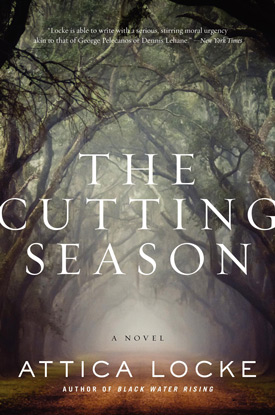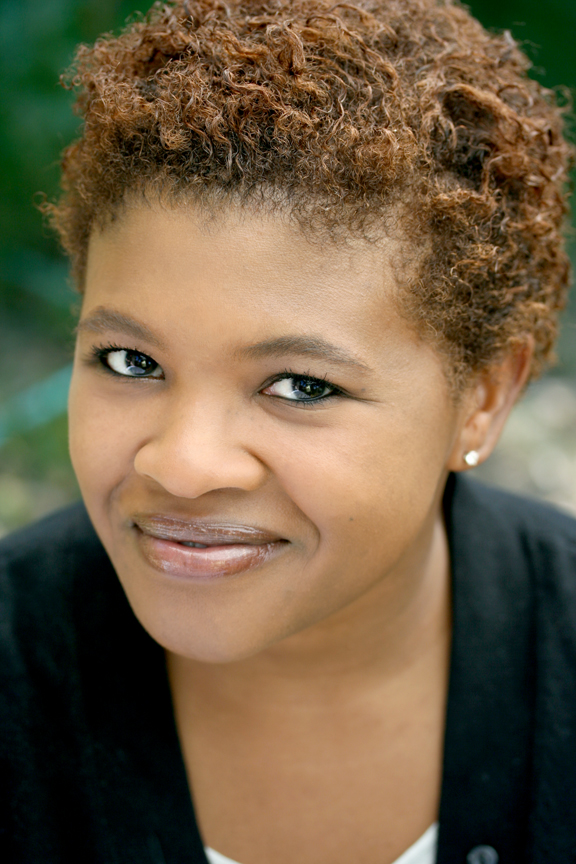WHO SHE IS: Attica Locke, screenwriter and author, The Cutting Season and Black Water Rising
SUCCESS STORY: Debut novel nominated for Orange Prize, LA Book Prize, Edgar Award, and NAACP Image Award. Second novel is the first selection on Dennis Lehane’s eponymous imprint. Both books featured in The New York Times.
WORK SCHEDULE: School prep and drop off, ridiculously early lunch (sometimes at 10:45 a.m.), long walk to clear the head, write daily between 11:30 and 2:30
KID(S): Clara, 6
SANITY VICE: Red wine and reading
Editor’s note: I met Attica years (and years!) ago, when I was a freshman in college. We lived in the same dorm. In the late 1990s she was hired by Jerry Bruckheimer to write a screenplay about a wrongful conviction case I worked on, and we spent a weekend chatting. Fast forward to 2009, Attica was featured in the Arts & Leisure section of the New York Times, this time as the new, critically acclaimed author of Black Water Rising. I interviewed her then for my newsletter, Discussion Divas, where we talked about how the news informed her writing. She landed in the NYT again in 2012 with her latest book, The Cutting Season, and I’m thrilled to spotlight her on maybrooks.com as an amazing working mom.
The Personal Pivot to Book Writing 
Attica Locke started her career in Los Angeles with a battery of odd jobs — answering phones at HBO, interning at the now defunct WB, temping — taking “anything to pay the bills,” she said. Knowing that she wanted to write and direct films, Locke won a seat at the coveted Sundance Screenwriters Lab, a five-day, intentensive screenwriting program founded by Robert Redford. Just 23 years old, she left the program with a deal to direct her first movie. But like many films in Hollywood, the deal fell apart. Locke was “heartbroken.”
Sundance was a personal turning point for Locke, teaching her how to pick herself up after professional disappointment. For more than 10 years, she worked hard at screenwriting, only to never see any of them realized on the big screen. “It was maddening. And part of the reason I decided to try my hand at writing a book.”
The decision paid off. When her daughter was three years old, Locke’s first book — a thriller set in Houston called Black Water Rising — met critical acclaim. It was shortlisted for the UK’s prestigious Orange Prize, nominated for a 2010 Edgar Award, an NAACP Image Award, a Los Angeles Times Book Prize, and a Strand Magazine Critics Award.
These days Locke is writing a third novel, and still working toward seeing one of her books transformed into a film. So how does this talented and prolific writer “do it all?”
Maybrooks Q&A: The Wiser Side, Going Easy, and other Tips
MB: It seems like writing is a great career to have as a mom – is it?
AL: Like anything else, there are good things and bad things about being a writer and a mother. I am grateful for the fact that I have such a flexible schedule. Of course, the flip side to that is that my job is the first one to get put on the backburner if Clara gets sick or something at the house needs to be fixed. The best gift that motherhood has given me as a writer is that I love more deeply than I ever have in my life. I am wiser on the other side of being a mom.
MB: Writing takes an incredible amount of discipline. How do you motivate yourself and keep yourself on schedule?
AL: Well, I like it. That’s the main thing. I like to write, and so I’m drawn to do it, and hopefully always will be. As to discipline, well, I have a lot of practice. I’ve been a professional writer for a long, long time. And I have to force myself to say no to things. I can’t be on every parent committee at Clara’s school. I can’t visit every book club. I have to leave time for myself and my writing life.
MB: What is the hardest part about getting a first book published?
AL: For me, getting an agent was harder than getting my first book published. That’s where I got all the rejections. Agents in a lot of ways serve as gate-keepers, and if you have a good agent, it’s someone whom the major publishing houses trust and rely on to find great talent. I found that hurdle more challenging than the rest of it.
MB: Once a book is published, a lot is put upon the author to help sell the book, which can mean a good deal of travel. How do you manage that aspect with your daughter?
AL: I’m very lucky to have an extremely supportive spouse – who also happens to not travel for work. When I was on book tour this past fall, he did all the work: drop-offs, pickups, lunches, gymnastics, all of it. She stayed at daycare for a few days after school and some days my sister would help out, just like I’ve done for her when she’s been out of the country working on a show. It takes a village, for sure.
MB: What’s your biggest challenge as a working mom and what do you do to address it?
AL: Time! I never have enough! And I always think other moms are doing it better than me, that they’re managing their time better than me, getting more done, etc. My only cure – other than the red wine I mentioned above – is that I have a great therapist, who also happens to be a mother.
MB: What advice do you live by as a working mom?
AL: Early into my mom neurosis, my therapist told me about the book, A Good Enough Parent. I try to remember that “perfection” as a goal is a set-up. I try (but don’t always succeed) to go easy on myself.
– SD





